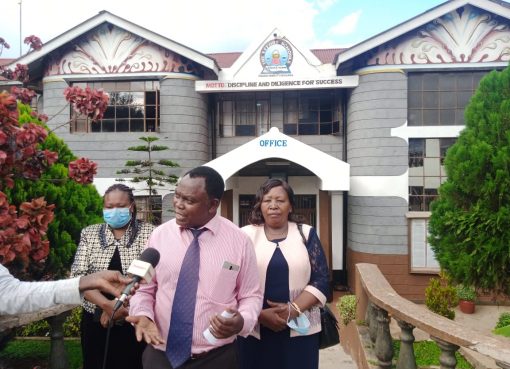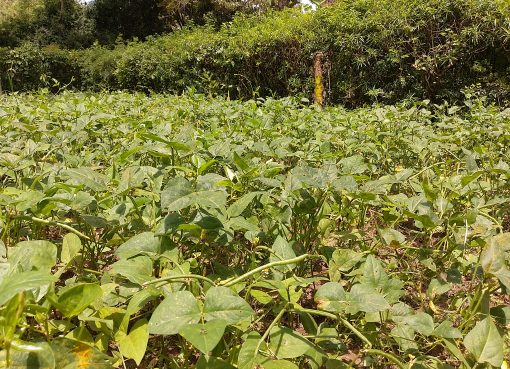Murang’a County is arguably the leading producer of avocados in Kenya with the largest percentage of this produce destined for the export market.
And while there are various contentious issues surrounding the avocado fruit from daylight theft to market control, middle men influence and proposed regulations, one farmer in Ndutumi, Maragua Sub County has been smiling all the way to the bank for the last ten years from what he terms as his green gold mine.
Wilson Nduati’s 200 hass avocado trees strewn over his three-and-a-half-acre piece of land have not only sustained his family but also educated two of his six children up to university level.
KNA found the 67-year-old mason turned farmer meticulously harvesting the avocado fruit with the help of five young men he has employed, baskets hang on theirs shoulder to avoid dropping the fruits down.
He is harvesting the fruits for the third and last time this year. “I planted the avocados 10 years ago, there are two main seasons in a year but if the tree is properly manured and watered harvesting can be done up to four times,” he states.
“Life was unbearable for my family and I could not manage to educate all my children until a friend introduced me to the hass avocados. He showed me how to graft the ordinary avocado tree with a hass tree to get the seedling and that was my turning point,” observes Nduati.
Hass avocados which are most preferred in the export market are best grown from grafted seedlings because grafting improves the variety by increasing its resistance to diseases and high yields and adaptability to various soils
Armed with the knowledge and determination, the farmer whose career in masonry was not yielding much, planted the seedlings in his farm and is one of the pioneer farmers in Ndutumi area and doubles up as the chairperson of Ndutumi avocado growers’ association.
Hass avocados, according to Nduati which are preferred in the export market especially in European market are obtained and best grown from grafted seedlings. “Grafting improves the variety by increasing its resistance to diseases and increases yields,” he notes.
He adds hass avocado is also good for the export market as it has a long shelf life and can take up to two weeks upon ripening without getting spoilt.
The hass avocado fruit is small in size as compared to ordinary avocados and takes long to ripen as compared to ordinary avocado and is definitely a high yielder.
Planting the hass avocados involves preparing holes 2m by 24 ft and filling with manure and adequately watering. The first harvest is thereby expected in between 18- 24 months.
On a good season, Nduati harvests up to a ton and sells up to Sh. 240 a kilo to local exporting company.
He hopes that the county government will ensure they are connected to irrigation water as that is the only challenge he and other avocado farmers experience as they rely on the currently depressed rain water which is detrimental to avocado yields.
Further, he advises farmers to go for the best quality avocados that are acceptable in the export market so as to benefit from the venture. “Choose quality seedlings, manure properly and control pests and diseases for quality yields,” he adds.
Apart from weeding, he prunes his avocados trees once per year and uses a glued trap to catch thrips which are common pests in avocados.
Avocados contain high levels of healthy beneficial fats, soluble fiber and are a source of vitamins C, E, K, and B6, as well as riboflavin, niacin, folate, pantothenic acid, and omega -3 fatty acids which are health beneficial.
By Florence Kinyua




